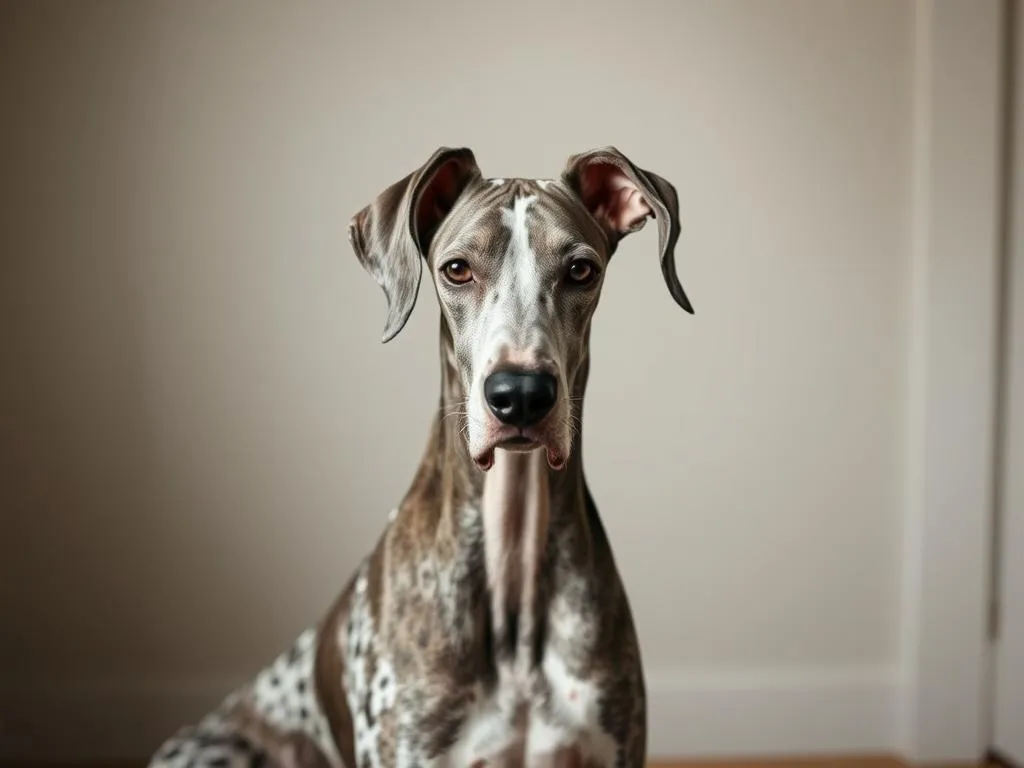
Introduction
Importance of Dog Health Care
Taking care of your dog’s health is crucial for ensuring they lead a long, happy, and fulfilling life. Regular health care not only helps in preventing diseases but also allows for early detection and treatment of health issues. Just like humans, dogs can face a myriad of health concerns, and understanding these can significantly impact their quality of life. Among various breeds, Great Danes are particularly known for their majestic size and gentle temperament. However, they are also prone to specific health problems that can affect their overall well-being, including issues related to weight.
Purpose of the Article
In this article, we will delve into the pressing question: “Why is my Great Dane so skinny?” We’ll explore the various factors that contribute to weight issues in Great Danes, identify potential underlying health concerns, and offer guidance on proper nutrition and care. By the end of this article, you will have a better understanding of how to maintain your dog’s health and ensure they thrive.
Understanding the Great Dane Breed
Characteristics of Great Danes
Great Danes are often referred to as the “Apollo of dogs” due to their impressive stature. An adult Great Dane typically weighs between 100 to 175 pounds and can stand anywhere from 28 to 34 inches tall at the shoulder. Their large size often comes with a gentle demeanor, making them excellent family pets. Generally, Great Danes are friendly, intelligent, and known for their affectionate nature. They require moderate exercise but are also prone to laziness if not properly stimulated.
Common Health Issues in Great Danes
With their colossal size comes a unique set of health challenges. Some common health issues in Great Danes include:
- Hip Dysplasia: A genetic condition causing improper formation of the hip joint, leading to arthritis and pain.
- Bloat (Gastric Dilatation Volvulus): A life-threatening condition where the stomach fills with gas and twists.
- Heart Conditions: Great Danes are predisposed to certain heart issues, such as dilated cardiomyopathy.
Additionally, various genetic predispositions can affect their weight, making it vital for owners to be vigilant about their dog’s health.
Factors Affecting Weight in Great Danes
Nutritional Needs
Great Danes have specific dietary requirements that differ from smaller breeds. They require a balanced diet rich in:
- Protein: Essential for muscle development and repair.
- Fats: Important for energy and overall health.
- Carbohydrates: Provide a necessary energy source for daily activities.
The right balance of these nutrients is vital for maintaining a healthy weight. It is advisable to choose high-quality dog food specifically formulated for large breeds.
Metabolism and Activity Level
Metabolism plays a significant role in a dog’s weight. Great Danes generally have slower metabolisms compared to smaller breeds, which can lead to weight fluctuations. Additionally, their energy levels can vary; some may be more active, while others prefer lounging around. Regular exercise is essential to keep their metabolism functioning optimally and to prevent weight gain or loss.
Age and Growth Phases
Weight expectations for Great Danes differ based on their age. Puppies go through rapid growth phases, requiring more calories to support their development. Adult Great Danes need a balanced diet to maintain their weight, while senior dogs might require adjustments in their diet to prevent obesity or weight loss due to health issues.
Identifying Underlying Health Issues
Signs of Malnutrition or Weight Loss
If you notice your Great Dane becoming unusually skinny, it’s essential to look for signs of malnutrition or weight loss, which may include:
- Behavioral Indicators: Lethargy, disinterest in play, or changes in appetite.
- Physical Signs: A visible ribcage, lack of muscle mass, or a prominent spine.
These signs can indicate that your dog may not be getting the nutrients they need.
Common Medical Conditions
Several medical conditions can lead to weight loss in Great Danes. Some of these include:
- Gastrointestinal Issues: Parasites, infections, or food allergies can prevent proper nutrient absorption.
- Metabolic Disorders: Problems such as diabetes or hyperthyroidism can lead to weight loss.
If you notice any of these signs, it’s crucial to consult a veterinarian for a thorough examination.
When to Consult a Veterinarian
Recognizing when to seek veterinary assistance is vital. If your Great Dane exhibits any of the following signs, it’s time to consult a vet:
- Sudden weight loss or gain.
- Persistent vomiting or diarrhea.
- Changes in behavior or energy levels.
- Any signs of distress or pain.
Regular health check-ups are also important for Great Danes, as they can help identify any underlying issues before they become severe.
Proper Nutrition for a Healthy Weight
Choosing the Right Dog Food
Selecting the right dog food is crucial for maintaining your Great Dane’s health. When choosing dog food, consider the following:
- Types of Dog Food: Kibble, wet food, or raw diets all have their pros and cons. Kibble is convenient, while wet food can be more palatable.
- Evaluating Food Labels: Look for high-quality ingredients and avoid fillers. The first few ingredients should be protein sources, and the food should be specifically formulated for large breeds.
Portion Control and Feeding Schedule
Proper portion control and a consistent feeding schedule can also help maintain a healthy weight. For Great Danes, consider these practices:
- Recommended Feeding Practices: Typically, adult Great Danes should be fed twice a day. Puppies may require three to four meals to support their growth.
- Monitoring Portion Sizes: Regularly review feeding guidelines based on your dog’s weight and activity level. Adjust portions as needed.
Supplements and Treats
In addition to regular dog food, some owners may consider supplements to support weight gain and overall health:
- Role of Vitamins and Minerals: Essential vitamins and minerals can help fill nutritional gaps.
- Healthy Treat Options: Choose treats that are high in protein and low in fillers. Avoid giving table scraps that can lead to weight fluctuations.
Exercise and Lifestyle Considerations
Recommended Exercise Regimen
Exercise is vital for maintaining a healthy weight in Great Danes. Here are some tailored exercise plans:
- Age-Appropriate Activities: Puppies require short bursts of play, while adult Great Danes benefit from daily walks and play sessions. Senior dogs may need gentler activities, such as swimming or light walks.
- Types of Activities: Engage in activities like walking, swimming, and playtime with toys to keep your Great Dane active and entertained.
Home Environment and Lifestyle Adjustments
Creating a comfortable home environment can significantly impact your dog’s well-being:
- Comfortable Living Space: Ensure your Great Dane has a cozy bed and space to move around comfortably.
- Reducing Stress Factors: Minimize stressors in your home that could affect your dog’s eating habits, such as loud noises or changes in routine.
Monitoring Progress and Adjustments
Tracking Weight and Health Changes
Monitoring your Great Dane’s weight and overall health is essential. Here are some strategies:
- How to Weigh Your Dog at Home: Use a standard scale and adjust for your weight if needed. Regularly track their weight to identify any fluctuations.
- Keeping a Health Journal: Document changes in appetite, weight, and behavior to provide your veterinarian with valuable information.
Adjusting Care Plans Based on Progress
Based on your observations, you may need to adjust your Great Dane’s care plan:
- Revisiting Dietary and Exercise Plans: If you notice weight loss or gain, consult your vet to reassess their diet and exercise regimen.
- Importance of Regular Vet Visits: Schedule regular check-ups to ensure your Great Dane is on the right track regarding health and weight.
Conclusion
In summary, understanding why your Great Dane is so skinny involves a comprehensive look at their nutritional needs, activity levels, and potential health issues. By being proactive in their health care, you can help your dog maintain a healthy weight and enjoy a long, happy life. Remember to monitor their progress, consult your veterinarian, and provide a loving environment that fosters their well-being.
As a Great Dane owner, your commitment to their health will not only improve their quality of life but also strengthen the bond you share. A healthy, happy Great Dane is not just a pet but a cherished family member.









